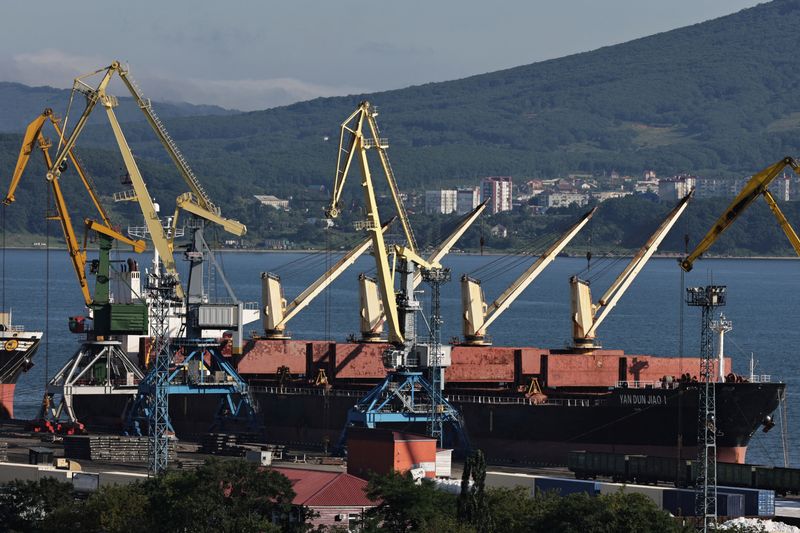By Laila Kearney and Jeslyn Lerh
SINGAPORE (Reuters) -Oil costs steadied on Tuesday after falling for the previous two periods, as traders remained cautious amid expectations of plentiful provides and weak demand, whereas disregarding the U.S. presidential marketing campaign upheaval.
futures for September rose 2 cents to $82.42 a barrel by 0320 GMT. U.S. West Texas Intermediate crude for September dipped 2 cents to $78.38 per barrel.
Merchants principally ignored U.S. President Joe Biden’s resolution to name off his reelection bid and endorse Vice President Kamala Harris on Sunday. Citi analysts stated they believed neither Harris nor Republican nominee Donald Trump would promote insurance policies that will drastically have an effect on oil and fuel operations.
As a substitute, the market centered on fundamentals, which Morgan Stanley analysts stated had been more likely to steadiness out by the fourth quarter and rise to a provide surplus by subsequent 12 months, which might drag down Brent costs to the mid-to-high $70s per barrel vary.
Any uptick in oil costs was extra due to market consolidation and dip shopping for exercise, stated Priyanka Sachdeva, senior market analyst at Phillip Nova.
“Any further weakening of demand signals, combined with a resolution in Gaza, could lead to a further decrease in oil prices,” Sachdeva stated, including {that a} swell within the U.S. inventories final week can be an indication of dented demand.
The American Petroleum Institute, a commerce group, is because of launch its estimates for final week’s oil inventories on Tuesday, whereas official U.S. authorities knowledge is scheduled to land on Wednesday.
A preliminary Reuters ballot of six analysts estimated that shares, on common, fell by 2.5 million barrels within the week to July 19, whereas gasoline shares seemingly dropped by 500,000 barrels.

The market can also be watching developments in Russia. The Tuapse oil refinery, its largest on the Black Sea, was broken in a significant Ukrainian drone assault in a single day which sparked a fireplace, Russian officers stated on Monday, although the extent of the harm was not instantly clear.
“Further strikes on Russian refinery capacity would support refined product prices, due to lower output, and somewhat bearish for crude oil, as it would increase availability of crude oil for export,” stated ING market strategists in a word.




